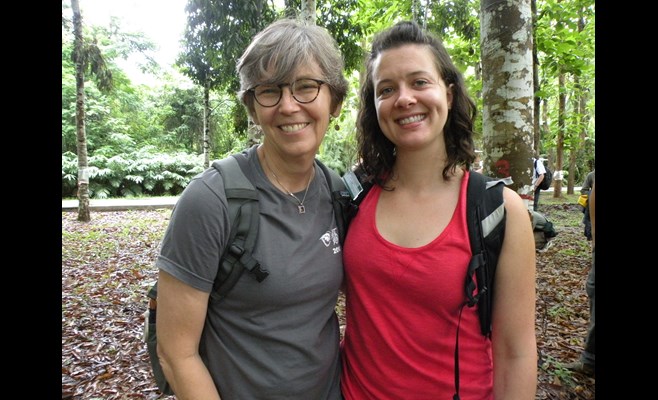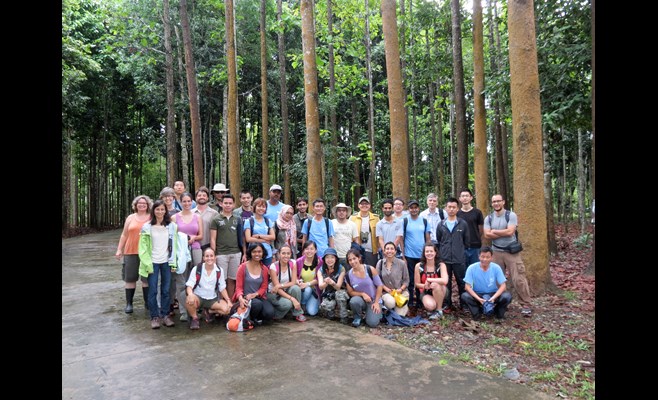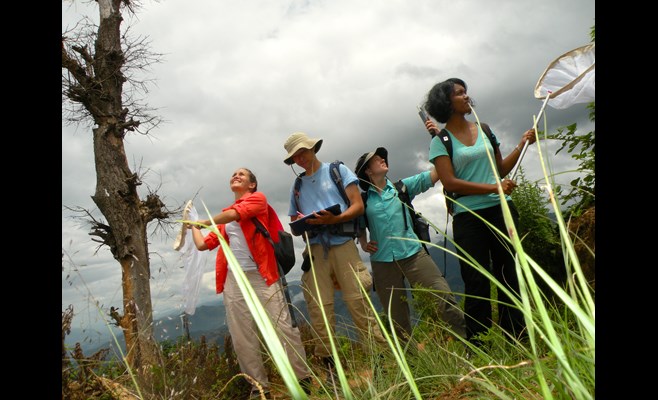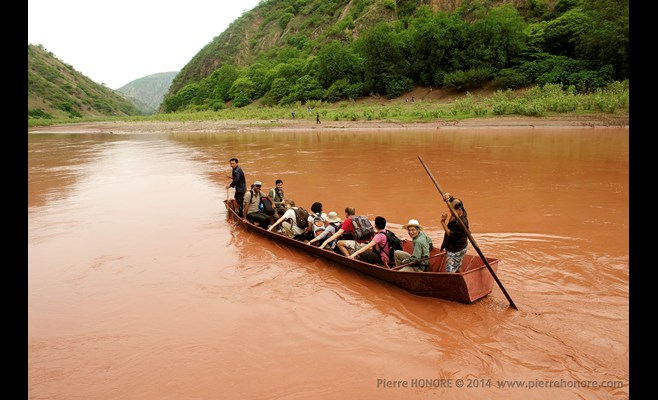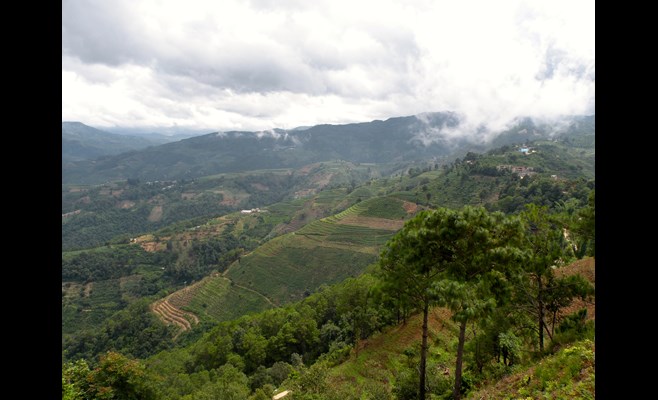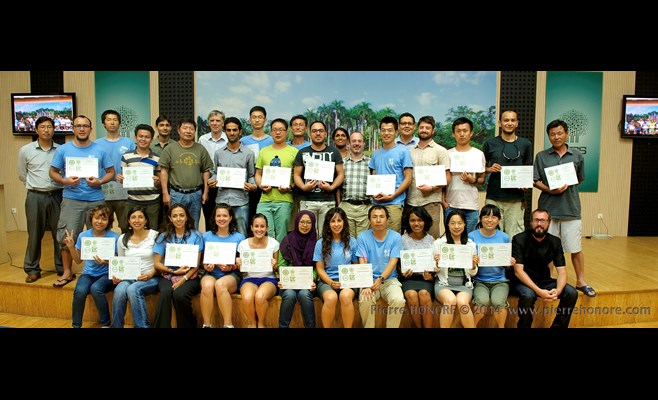FAYETTEVILLE, Ark. – What started as a conversation among researchers from the United States and China two years ago bloomed into a training course for graduate students on ecology and climate change held this past summer in southern China.
Laura Walker, a graduate student at the University of Arkansas, was one of 27 students from 16 countries who were accepted into the course, “The Ecology of Climate Change in the Tropics and Sub-Tropics,” which took place at the Xishuangbanna Tropical Botanical Garden over four weeks in June and July. Cynthia Sagers, an associate vice provost for research and economic development at the U of A, was one of the course’s 10 instructors.
The course was the product of a collaboration between the Chinese Academy of Sciences and the Organization for Tropical Studies, an international consortium of 64 institutions with a 50-year history of running field programs, largely for graduate students. The U of A is a member of the Organization for Tropical Studies.
“Field ecology and evolutionary biology research are very strong in the United States, in part because we have a long history of field research courses through the Organization for Tropical Studies,” Sagers said. “In 2012, we had a workshop in Costa Rica with about 30 researchers from the Americas and researchers from China loosely corralled around sustainability science – an emerging area of environmental science. We discussed developing field programs for graduate students in sustainability science. The China course this summer was intended to be a ‘proof-of-concept’ course, touching on the ideas we developed the year before.
“Our vision is a partnership with Central America, South America and tropical China to build programs in field biology,” she said.
Sagers, a professor of biological sciences at the U of A since 1994, wrote a grant proposal to the National Science Foundation to fund the course for two years for about $80,000. The NSF awarded the project, with Sagers as its principal investigator. The NSF grant supported the Costa Rica workshop in 2014 and travel to China for five students and five instructors from the United States. The Chinese Academy of Sciences supported seven students from Latin America and students from Asia.
The course focused on different aspects of climate change ecology from the practical, theoretical and social perspectives. It mixed lectures on theory with practical field experiences on methods at the botanical garden in Yunnan Province. The botanical garden, which covers nearly 2,800 acres, is close to the borders between China, Laos and Myanmar.
“It was so powerful to think about all the intellect and energy in this group of graduate students,” Sagers said.
Walker, a doctoral candidate in biological sciences, is completing her dissertation on a group of slime molds known as myxomycetes. She conducted research in collaboration with the Smithsonian Tropical Research Institute in the summers of 2012 and 2013. In 2012, she became the first scientist to collect slime molds from soils in Panama’s Barro Colorado Nature Monument. In doing so, she became one of the first researchers to systematically take samples of slime molds, the most abundant predators of soil bacteria and fungi, in tropical soils.
In China, Walker participated in a team research project that investigated changes in color formation patterns and sunlight absorption ability of butterfly wings at different altitudes.
“We tested the hypothesis that darker butterflies are found at higher elevations and lighter butterflies are at lower elevations, the reason being that the higher elevation is colder and dark butterflies can absorb light and get warmer faster, allowing them to fly,” Walker said.
The experiment confirmed the hypothesis and provides clues for the survivability of darker-colored butterflies as the planet continues to warm, and one of the students on her team plans to use the project as the basis for her dissertation, she said. The project was chosen as the best among the five projects conducted by the students.
“The most important thing I took away from this course was thinking about what I do as an ecologist. I see my work now from a different perspective, a more global perspective, beyond just a little scoop of soil in Panama,” Walker said.
The course’s organizers plan to hold a similar course in Bolivia in 2015. Early-career professionals, such as postdoctoral research associates and first-year faculty members, will constitute the course’s enrollees and will come together to create an interdisciplinary project in sustainability science that will be submitted as a grant proposal, Sagers said.
Topics
Contacts
Cynthia Sagers, associate vice provost for research and economic development
Academic Affairs
479-575-5624,
Chris Branam, research communications writer/editor
University Relations
479-575-4737,
